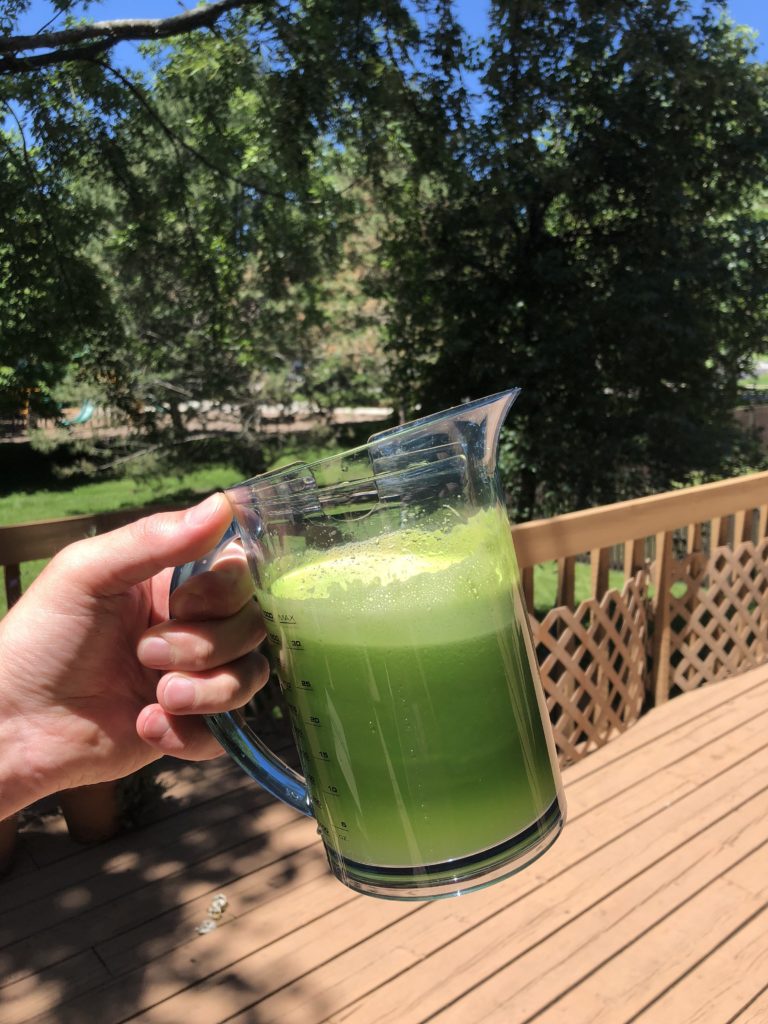Wellness Roundup: How Mindfulness Improves Digestion
As someone with lifelong digestive issues, I have done my fair share of testing. Food allergy testing, experimenting with multiple diets, at home lab work, and even a colonoscopy and endoscopy. After not finding solutions to my physical issues, I began looking to other means. The only area I hadn’t yet explored was mental and emotional health. As I came to find out, our mental state is closely tied to our digestive state. Should this connection be interrupted (say from a stressful week at work or a fight with a loved one), it can cause a variety of physical symptoms. We will look at this and more in Wellness Roundup: How Mindfulness Improves Digestion.

photo by alicia petresc on unsplash
WHAT IS MINDFULNESS?
Here is a quick refresher for those who aren’t familiar with this concept or need some clarification. Mindfulness is the concept of living in the here and now. It shows us how to focus our awareness on the current moment. This awareness then allows us enjoy all of life’s blessings. We learn how to not take things for granted. We learn not to judge or criticize, but to accept things as they are and remain open and curious.
Mindfulness is often tied to Yoga, which helps us connect mind and body. But it definitely is not the “shut off your mind” concept that many mistake it for. To learn more about mindfulness visit this get started guide.
HOW MINDFULNESS APPLIES TO DIGESTION
Do you ever notice that when you eat in a rush, or while upset, that your meal doesn’t sit quite right? Or when you are grieving how you have no appetite? This is because there is a direct connection between our brain and digestive system.
This system is delicate, and is easily influenced by external stressors. With the rise of autoimmune disease and spike in mental illness in the United States, we have to take notice. The stress and demands of today’s society are more than our systems can handle. Managing family, career, and a household is enough. But then we also deal with loss, chronic illness, trauma, and all the psychological effects of life’s struggles.
Whatever the stressor may be, we respond in generally the same way. Our mind and body enters fight or flight, as the self-protection default. Our defenses are heightened to respond to a perceived threat, activated by the sympathetic nervous system. This sets off a cascade of physiological responses including what you may recognize as increased heart beat, heavier breathing, acute vision, and even increased physical strength.
Simultaneously during this process, some “non-essential” functions (such as digestion, hormone production and regulation) are downgraded to save energy.
Normally this response is isolated, or acute, and passes quickly. But with today’s modern pressures, we can become stuck in the fight or flight state. This is when our symptoms become a consistent problem. At least until we learn to break these patterns by identifying and managing stress.
STRENGTHEN THE GUT-BRAIN CONNECTION
When stress becomes chronic, the delicate connection between the gut and brain can become damaged. This can lead to symptoms such as nausea, changes in eating habits, pain, depression, and more. In severe cases it can even lead to IBS and IBD.
Thankfully we can alter this process and retrain ourselves to enter the rest and digest state. This allows our entire system to calm down and come back into balance. Many see positive improvement once implementing these changes, myself included.
Let’s look at a few ways that may help reduce stress and strengthen the gut-brain connection:
- Gentle movement. Walking is one of the best ways to support not only healthy digestion, but also a calm mind and nervous system. Yoga is another great way to reduce stress and anxiety, and practice mindfulness.
- Meditation + breathe practice. Both of these tools help calm the parasympathetic nervous system and allow us to better manage stress. Plus, they are great resources for when we fall into that overwhelmed chronically stressed state.
- Spend time in nature. Connecting with God’s green earth benefits our body, mind, and soul. Studies show a minimum of 30 but ideally 120 minutes per week will help reduce stress and calm the body.
- Journal. There is something about free writing and allowing your brain to unload all that baggage. Releasing emotions helps us connect our mind and body. On the contrary, holding onto negative emotions can be toxic to the mind and body.
MINDFUL EATING TIPS
Mindful eating may be the key to improve our digestion. This is especially important for those with compromised digestion, but also benefits those living a past-paced high stress lifestyle (so basically all of us).
Applying these simple tips will help us incorporate mindfulness into our eating routine, and potentially alleviate digestive distress.
SLOW DOWN AND RELAX
Our mind and body needs to be in a calm state in order to properly digest our food. When possible, avoid eating on the run or when upset. Prepare your mind and body for a meal by sitting down and relaxing instead of eating in front of the TV.
Say a prayer, meditate, or take a few deep breaths before you dig in to help you connect with the process of eating.
Admire the color and variety foods on your plate. While you eat, savor each bite and pay attention to the flavor and texture. Smelling your food also helps send positive signals to the brain, and activates your salivary glands and pancreas to prep for digestion.
FOCUS AND CHEW
Multi-tasking while eating disrupts the digestive process. It distracts us from paying attention to hunger signals and most importantly, chewing. The chewing process is essential to prepare saliva and digestive enzymes that break down our food.
Without this step, the food enters our system before it is ready, and digestive distress is more likely. Many professionals recommend chewing each bite of food 25-30 times. This pre-digests our food and prevents our system from having to do extra work.
PRACTICE GRATITUDE FOR YOUR FOOD
Gratitude can help us in most situations, and food is no different. Being thankful for having access to food, and the ability to prepare it ourselves helps us live in the moment. There are many ways we can practice gratitude for our food.
I really enjoying bringing gratitude into my food prep, which can often feel like a chore. Instead of grumping about having to make dinner after a long workday, I focus on the beauty of my ingredients. The relaxing act of washing, chopping, and cooking my meal. Feeling empowered for teaching myself how to cook. Being thankful that I can prepare healthy nourishing food for my family.
CONNECT WITH YOUR FOOD SOURCES
When we are stressed and distracted we don’t often take time to think about where our food comes from. About the farmer who works 12 hours a day to grow our vegetables with care. Or the family who drives 2 hours every week to deliver us grass-fed beef and pasture-raised chicken.
Reconnecting with our food sources helps us appreciate the small things that make our meals possible. I find buying directly from farmers, and getting to know them personally, really helps bring this process full circle. For more information view our local food sources section.
LEARN YOUR SPECIFIC NEEDS
Food as medicine is thankfully a growing concept because of the millions of success stories. We have the ability to heal based on what we eat, and that is a powerful tool.
It is important to remember that understanding our personal dietary needs is paramount to healthy digestion. Some of us can include dairy in our life, while others cannot even handle a bite of cheese. Some of us have multiple food intolerances to manage, while others may need to connect with intuitive eating.
When we understand exactly what our body needs, we are better equipped to provide this support and reap the benefits of a real food lifestyle.
ADDRESS EMOTIONAL EATING
Disordered eating has become a phenomenon with the rise of elimination diets and healing protocols. Our emotions are tied to every function of our body, and healing these connections strengthens the bonds.
If you struggle with binge eating, food restriction, or fear around food, consider partnering with a professional to help you heal these connections.








